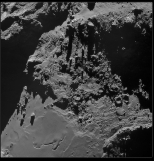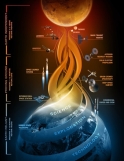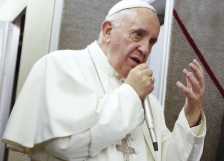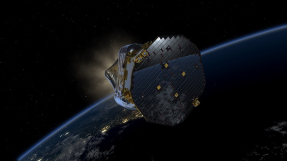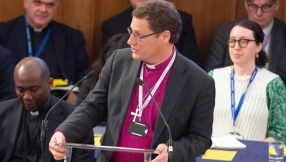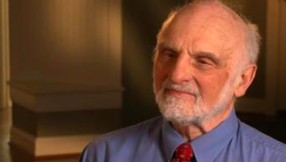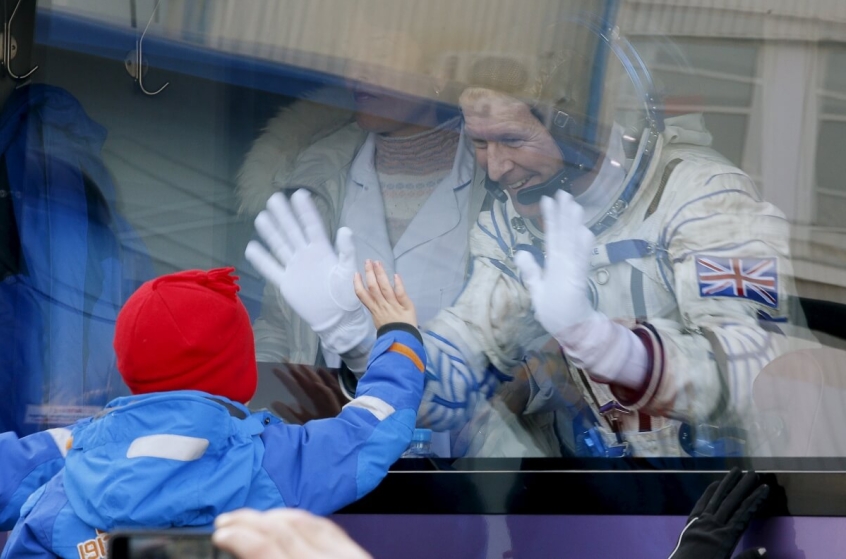
Most people run the London Marathon to raise money. Tim Peake's 26.2 miles, on the other hand, is costing the taxpayer gazillions.
Peake, for those who don't know – the usual expression is 'for those who live on the moon', but that doesn't really seem appropriate – is the first British astronaut to travel to the International Space Station. He's on his way now, and since he'll still be there when the marathon takes place in April he'll run the distance on a treadmill.
It has to be said that the marathon isn't the point of the journey – and actually astronauts have to spend large amounts of time exercising, because of the effect of weightlessness on their bodies – but still. Amid the carnival of the lift-off and the general sense of excitement, that note of frivolity echoes concerns about the whole enterprise.
Is the whole space thing a waste of time? Have lives been sacrificed for nothing? Is the ISS really an enormous flying white elephant?
The cost of the ISS is staggering – around $150,000,000,000, give or take the odd billion. Even the toilets cost $19 million each, while the cost of the whole human waste set-up is around $226 million. That would make a sizeable dent in the budget for the Paris climate change deal. It could reconstruct Syria, wipe out a few more diseases and help goodness knows how many people out of poverty.
What on earth is the world doing, spending money on space research? Why go to Mars – aren't there enough problems down here to fix?
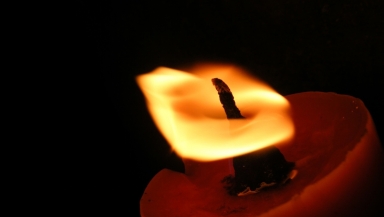
Put like that, I think the arguments against space research and exploration are pretty strong. But cards on the table: they don't convince me.
I understand it when people say there's so much real human need and suffering because the money that could fix it is being blasted into space.
I know the arguments about the cutting-edge science that the ISS has made possible, too. I'm happy to believe that we know stuff about how the universe works that we wouldn't have known without it. I like seeing the pictures from the Hubble space telescope. They're very pretty. Whether the returns justify the diversion of funds from crop research, medical innovation, conflict resolution and all the other things that make life better in the here and now for ordinary people – that I'm not so sure about. On the other hand, assuming that if we hadn't spent money on space we'd have spent it on these other things is taking a very rosy view of human nature; we might have spent it on weapons.
But I still believe in space exploration, and I think my reasons go to the heart of what makes us human.
We are above all creators and explorers.
When God says in Genesis 1:26, "Let us make man in our image, in our likeness", all we know of God at this point is that he creates something new; that he is the God of potential.
So this is what being made in his image means. We make new things. Human beings, as far as we know, began as a species in Africa, millions of years ago. Look at us now. Britain is made up of dozens of tribes who migrated across the Channel or walked across while it was still dry land. America's Pilgrim Fathers were explorers, too.
The instinct of the creator and explorer is to refuse to accept limits. If we can imagine something, our impulse is to try to realise it.
Sometimes we fail, of course; probably more often than we succeed. But without permission to try, the knowledge of what we might do is a constant reproach. "A man's reach should exceed his grasp,/ Or what's a heaven for?" said Browning.
So, a blank cheque for space research? Of course not. But at least a plea not to begrudge what's already been spent, and to recognise that it answers a God-given instinct to explore the boundaries of his creation and "think God's thoughts after him".
If we believe that God made the universe, fathoming its mysteries and experiencing its wonders takes on the nature of a religious duty.
I'd love to see a human being walk on Mars in my lifetime. I wish Tim Peake and his fellow-astronauts very, very well.










